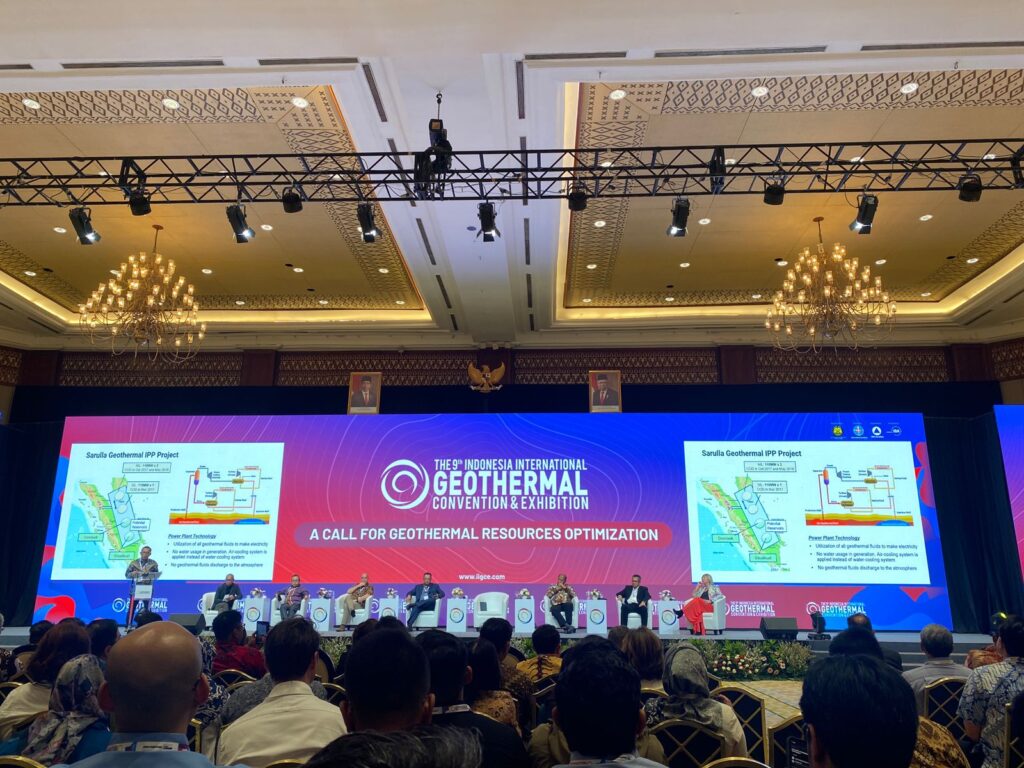 The 9th Indonesia International Geothermal Convention and Exhibition in Jakarta, Indonesia (source: ThinkGeoEnergy)
The 9th Indonesia International Geothermal Convention and Exhibition in Jakarta, Indonesia (source: ThinkGeoEnergy)“Program support and improved mechanisms are needed to attract more interest from geothermal developers in Indonesia, for example the preliminary survey and exploration assignment program that has been carried out by the Ministry of Energy and Mineral Resources. It needs to be expanded to locations where the data is not sufficient to make things easier for developers,” said Ma’ruf in his speech.
Government support
The government projects that by 2060 New Renewable Energy (EBT)-based generating capacity will reach at least 700 gigawatts (GW) originating from solar, hydro, wind, bioenergy, ocean currents and geothermal. From the projected generating capacity, geothermal generating capacity is targeted to reach 23 GW.
The Vice President said that the government is committed to continuing to support the development of geothermal energy as a source of renewable energy through more promising business schemes and the development of more affordable technological innovations.
Ma’ruf added that geothermal exploration incentives have been provided by the government in the form of funding through infrastructure financing programs and geothermal resource mitigation programs to attract investor interest in the geothermal sector.
“So it is hoped that the existence of geothermal plants can contribute to encouraging local economic growth, especially in infrastructure development and increasing local community income,” he said.
However, Ma’ruf reminded that efforts to manage geothermal resources must pay attention to environmental aspects, because most geothermal resources are located in forest areas, so management must pay attention to the supporting capacity of the ecosystem for animal life in the wild.
Working with stakeholders
On the same occasion, Director General of New, Renewable Energy and Energy Conservation (EBTKE) Yudo Dwinanda Priaadi said that to develop geothermal potential in Indonesia, the government has developed various strategies such as assigning preliminary surveys and exploration to private parties.
“The government is also building infrastructure access to geothermal work areas through collaboration with other ministries and institutions, such as road access to the project location that needs to be connected by the Ministry of Public Works and Public Housing. This road access is of course not only used for geothermal project purposes, but “also for access to local communities so that they can move the wheels of the economy,” explained Yudo.
In addition, cooperation from all stakeholders needs to be strengthened to provide financial support and incentives for geothermal project activities, support the development of geothermal projects and technology, share knowledge and public discussions to mitigate social issues, as well as capacity building and development.